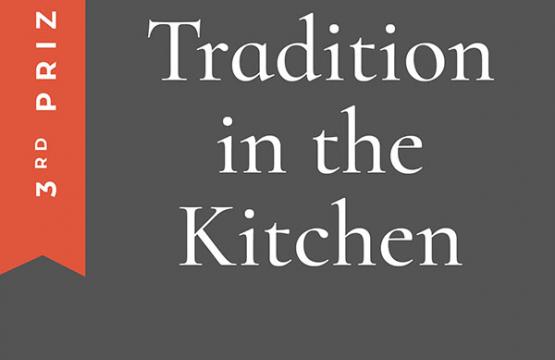
What is impossible with men is possible with God. I closed my eyes and envisioned this verse written on my refrigerator magnet and at the top of my to-do list, underlined in bright red. Usually, this verse motivated me as I tackled the daily feats that seemed just out of reach. But this moment was different. I needed more than a simple dose of inspiration to face what was ahead. Rather, I needed to cling to the truth of this verse as seriously as a rock climber clings to the knowledge that a tiny foothold will sustain his weight and prevent him from tumbling to the ground.
I was standing in line outside the Ministry of Interior building on a windy day in Jerusalem. Six months before, I had experienced an undeniable urging from God to move to Israel. The urging did not strike me as odd; I’d always imagined that someday, I would live in the land of my ancestors. From a young age, I would sing the chorus of Hatikvah, the Israeli national anthem, and feel a deep longing for a country I’d never visited. Later, as I grew, I began to understand the necessity of Israel’s role as the Jewish homeland, a safe haven where Jews from all over the world could escape persecution. Though it was difficult to say goodbye to my family and friends, I knew that I was traveling to a place where I already belonged.
Now, I found myself waiting anxiously to be admitted into the building that held the authority to accept or reject my application for citizenship. According to Israel’s Law of Return, any Jewish person has the right to immigrate to Israel and become a citizen. Though I had all of the necessary paperwork to prove my Jewish identity, I sensed that the process was stalling. An hour later, my fears were confirmed as I was whisked to an office in the back of the building. There, behind a desk, sat the director of the office, who invited me to take a seat. After some preliminary questions, her pleasant tone abruptly changed and she shoved a paper toward me. “We found this!” she exclaimed. The paper contained an article I’d written several years ago, which must have been pulled from the internet. Sensing that the woman wanted an explanation, I offered, “I wrote this article to explain how important my Jewish identity is to me.” She responded, “It says you’re Messianic! You can’t be Messianic and Jewish.” “Yes, I can,” I calmly responded. For the next thirty minutes, she questioned me, arguing that my belief in Yeshua was incompatible with being Jewish. Finally, she explained that a special committee would meet to determine the outcome of my application for citizenship.
I left the office, feeling the overwhelming indignation that is provoked by injustice. If Israel were to be a homeland for the Jewish people, then it needed to serve as a homeland for all Jewish people. Jewish believers in Yeshua were unquestionably persecuted during the Holocaust in the same manner that other Jewish people were persecuted. In fact, a display in Israel’s Holocaust museum memorializes one such family. Beyond that, I knew that deep within my heart, I was Jewish. How could this woman tell me otherwise? And how could my homeland tell me that I don’t belong?
Not surprisingly, the committee decided to reject my application for citizenship. Immediately, I went to the Kotel, the Wailing Wall, to pray where hundreds of thousands of Jews for generations have prayed. Do I fight this battle or do I give up? God, what are you asking of me right now? After leaving, I decided to meet with several lawyers to better understand my options. One lawyer explained to me that if we appealed, it was possible that my case could be heard in the Supreme Court of Israel. Though my chances were not promising, a victory would set a new precedent and make it illegal for Messianic Jews to be denied citizenship based on their beliefs. What is impossible with men is possible with God. Immediately, I felt a sense of calling and purpose. Perhaps this was the reason that my application had been denied. Perhaps God was
asking me to take a stand not simply for myself but on behalf of my people.
On the morning of my court case, the sky was gray and the air was misty from scattered rain. I sat in the pews of the courtroom awaiting my turn. First, a criminal was appealing his conviction for murder. As I watched his case unfold, I felt sobered by the enormity of the decisions that were made in that very room. Next, my case began. My lawyer stood up, facing the Supreme Court justices and told my story. Almost immediately, the justices began interrupting him, challenging his statements with looks of hostility that chilled my bones. My lawyer calmly continued, unphased by the harsh insults. At one point, the President of the Supreme Court looked straight into my eyes and said that the moment I believed in Yeshua, I stopped being Jewish. Though I had anticipated this possibility from the beginning, I could not have imagined how hearing that statement from the person with arguably the most authority in all of Israel would shatter me.
How does a person reconcile a calling they believe is from God and an outcome that appears to negate it? My mind wandered back to recent memories of friends who had prayed seemingly impossible prayers filled with the hope and confidence that God could turn the impossible into possible. Cancer diagnoses, seasons of unemployment, and failed relationships. How do we, as humans, wrestle with the knowledge that God is big enough to answer our deepest prayers, and yet, many times, appears silent?
Facing these questions has been more difficult than facing the Supreme Court justices. And while I still have not gained all of the answers, I have learned something of perhaps greater importance. I’ve learned that my faith can endure even after the greatest disappointment of my life. It is possible that I’ll never understand exactly why God led me to sell my belongings, move to Israel, and appeal to the Supreme Court. But I believe that my ability to say with sincerity that God is still good is of far greater value than an Israeli identification card denoting citizenship. And in the end, I believe that something miraculous did genuinely occur. God enabled me to see that His love was enough to sustain me even when I could not recognize it. What is impossible with men is possible with God.






